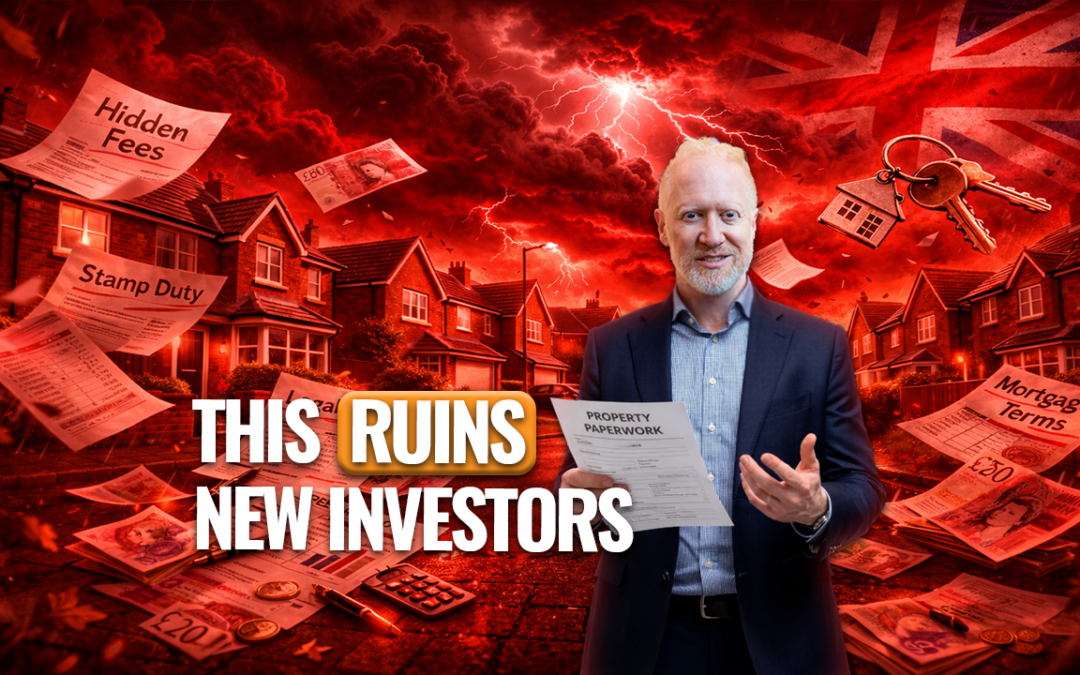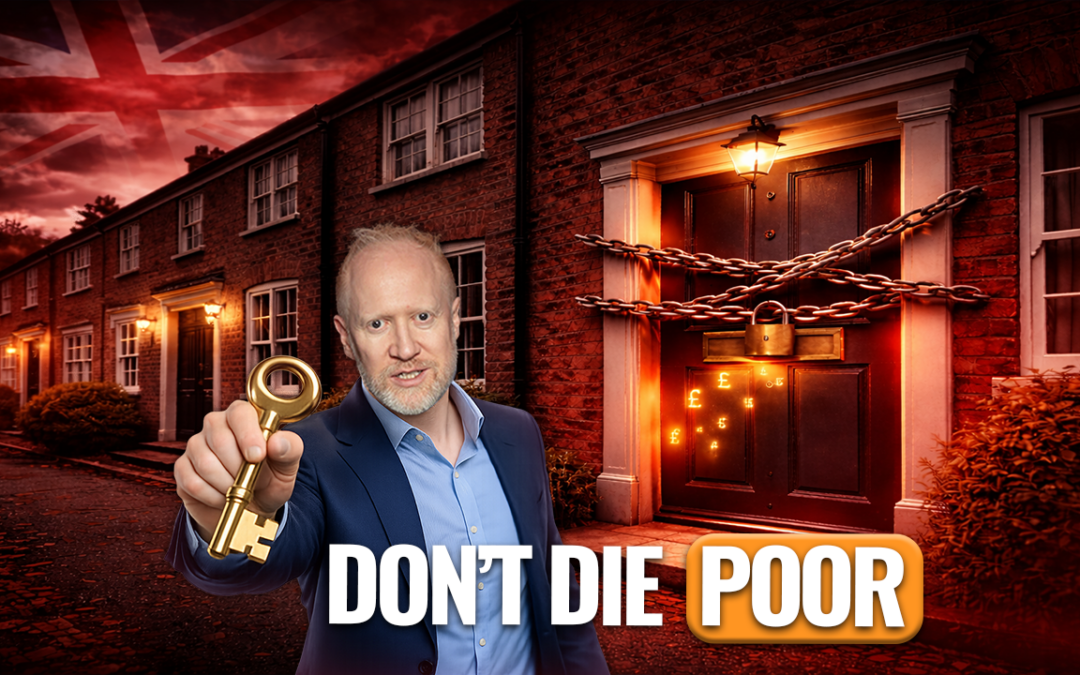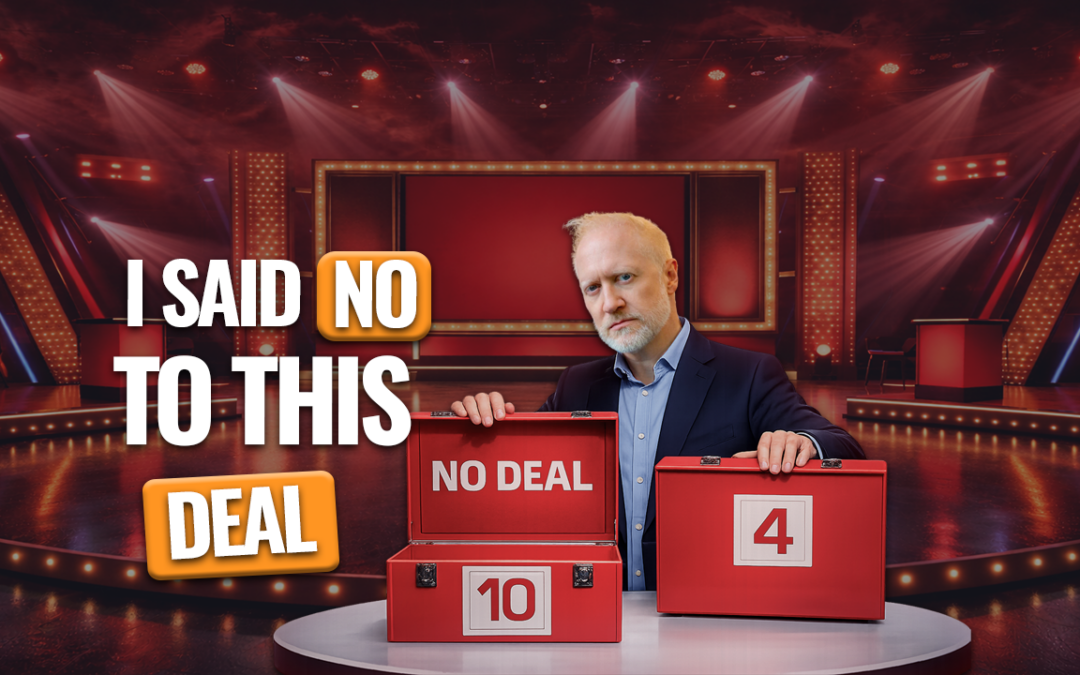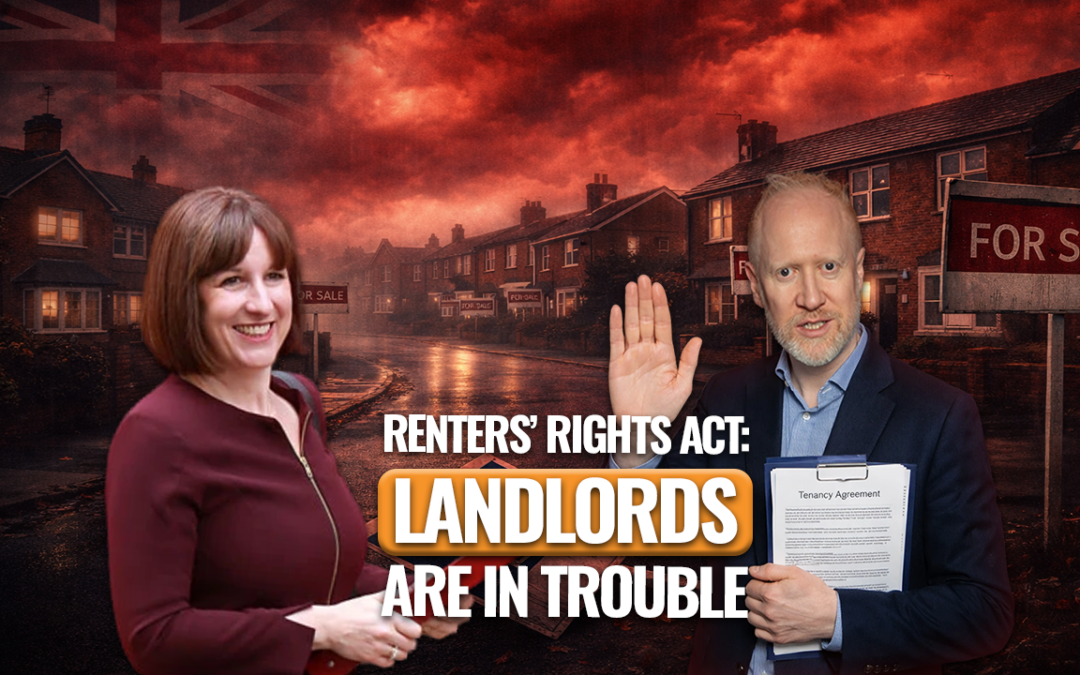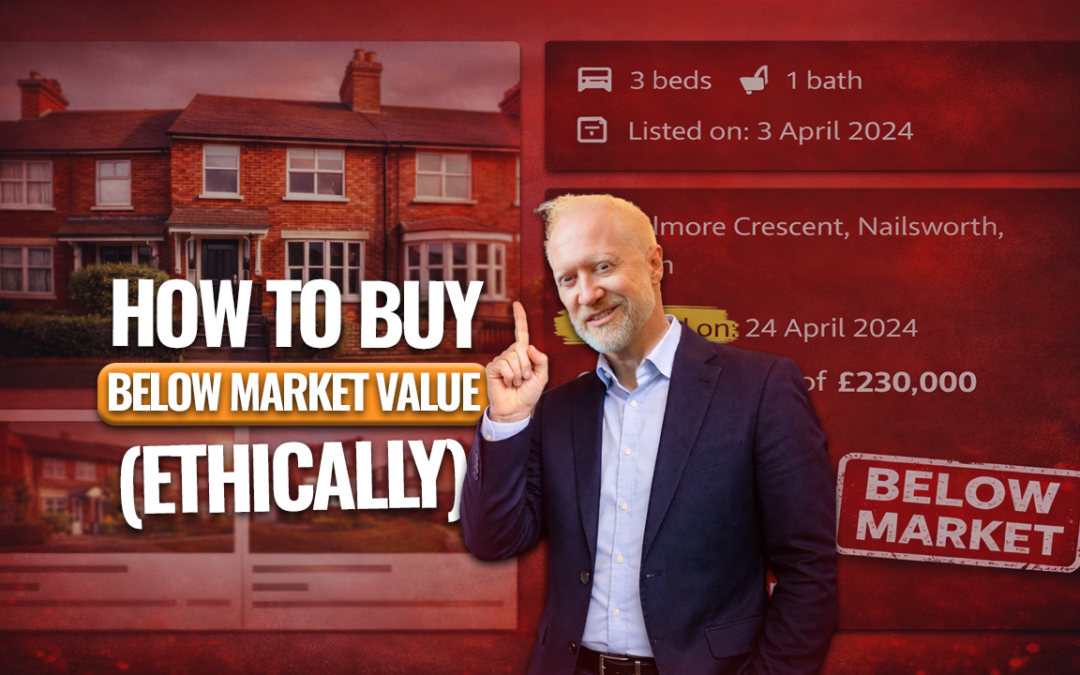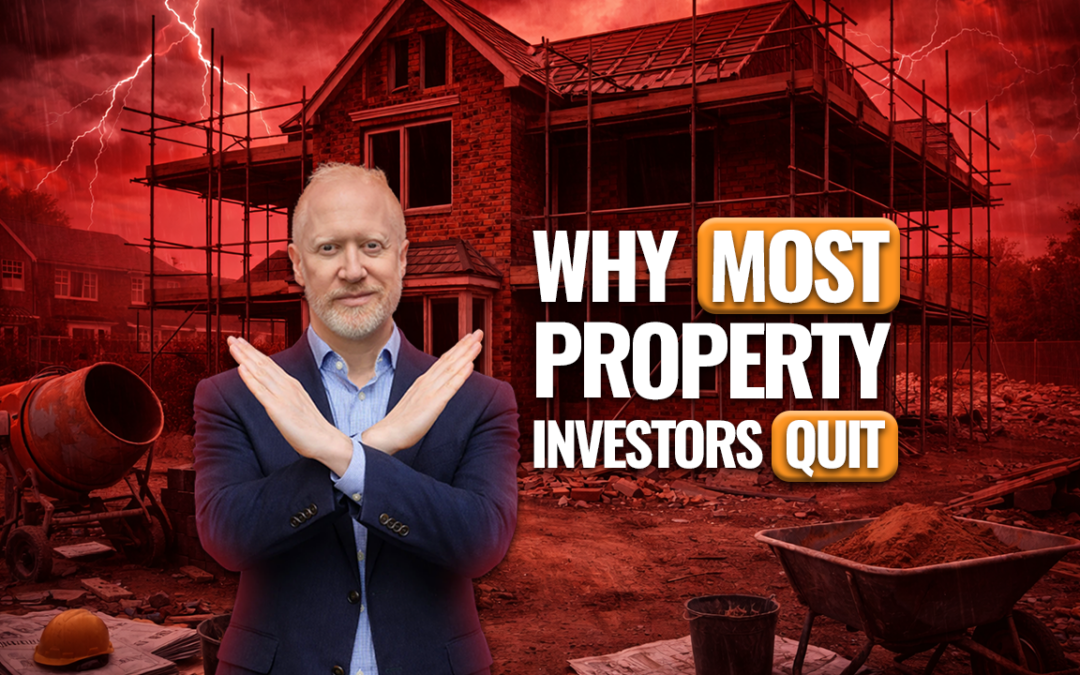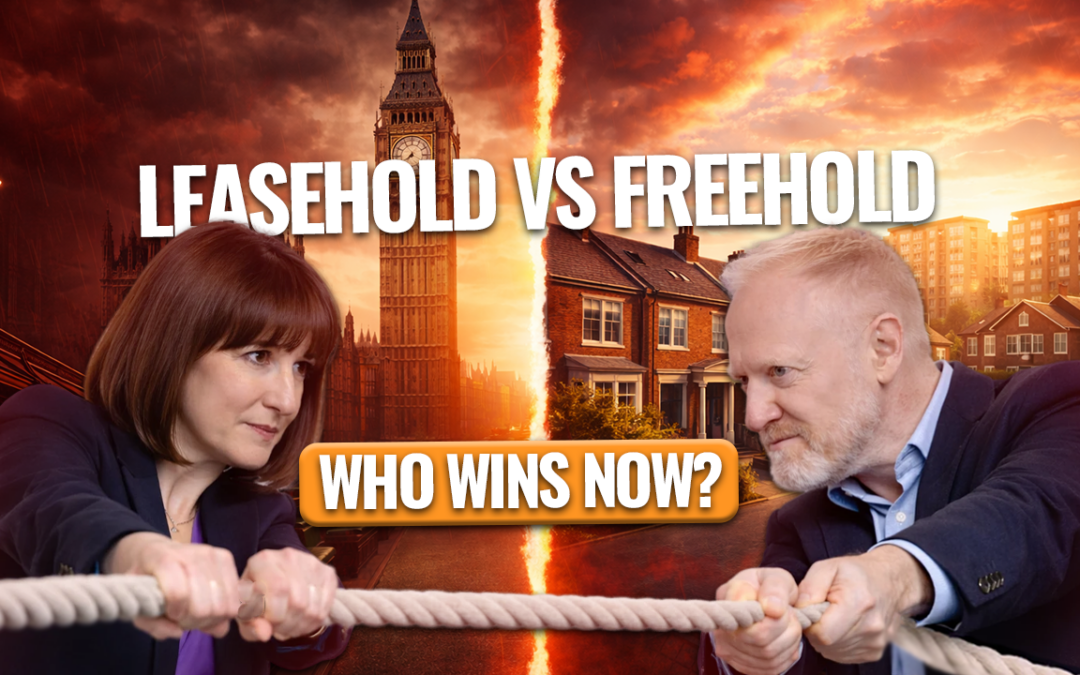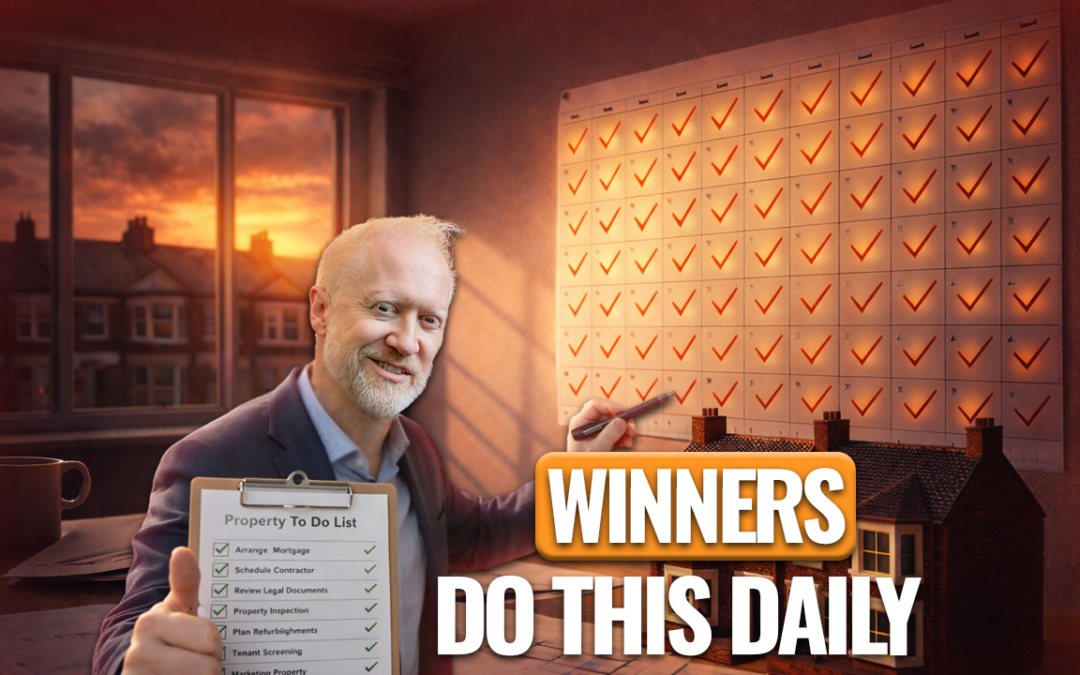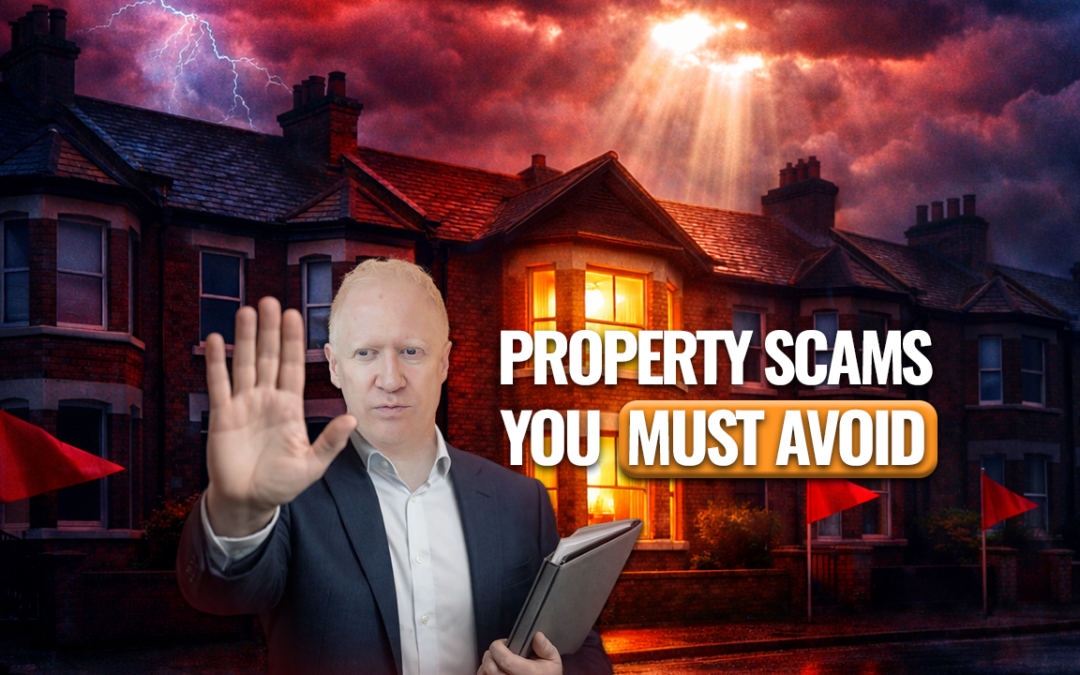Buying a Property That Gives You Equity On The Day
In this blog, I’m going to share with you how you could find the very best property deals in your area. This is the number one most important skill that you need to develop if you want to be a successful property investor. I’ve helped lots of people just like you learn how to find really good deals in your area. Now you might be thinking, okay, that’s great Simon, but what actually makes a good property deal. The reality is that what’s a good tool for you might be different for what I think is a good deal, it then might be different from someone else, but there are some core fundamental aspects that make it a good property deal.
You probably won’t get all of these in every deal you find. If you do find all of them, you should move really quickly because that’s a great deal. By the way, successful people are decisive. When successful people see a really good deal, they know how to move quickly. Obviously that comes with confidence, which comes over time.
The first element I always try and look for is buying a property that gives me equity on the day that I buy. What do I mean by that? Well, let’s say a property is worth £200,000 and you can buy it for maybe 170. That means you’re getting £30,000 equity locked in there the day you buy. That’s really good for a couple of reasons. First of all, a lot of people worry about us having a booming market in 2020, 2021. They wonder what’s going to happen to the property market in 2022, is the market going to crash? Is it going to keep going up? The reality is nobody knows what’s going to happen. So rather than wait to see what’s going to happen and maybe miss out, I believe if you find really good deals right now, which if you watch this video, it’s going to help you in your property journey. It then doesn’t matter what happens long term even if you buy something and the value does come down. If you’ve been able to buy at a discount with some equity locked in, that gives you a bit of a natural safety buffer. If the market continues to grow, which most people expect, then actually it means you can refinance that property quicker to get some or all of your deposit out. That’s a really good thing because it means you’re not leaving much money in the property.
So the first thing we always try to look for is buying below market value of what we call a wholesale price. Think about buying property at wholesale price, instead of the normal retail, which is what most investors would pay. Now having said that sometimes we might buy a property at the full asking price, people make a mistake. They see the asking price. The property might be listed for 170 and they think I’ve got to buy at a discount, I’ve got to take some money off. Actually the price it’s listed at might already be a really good price. So it comes down to knowing your local area. When you see a good deal, you can move quickly.
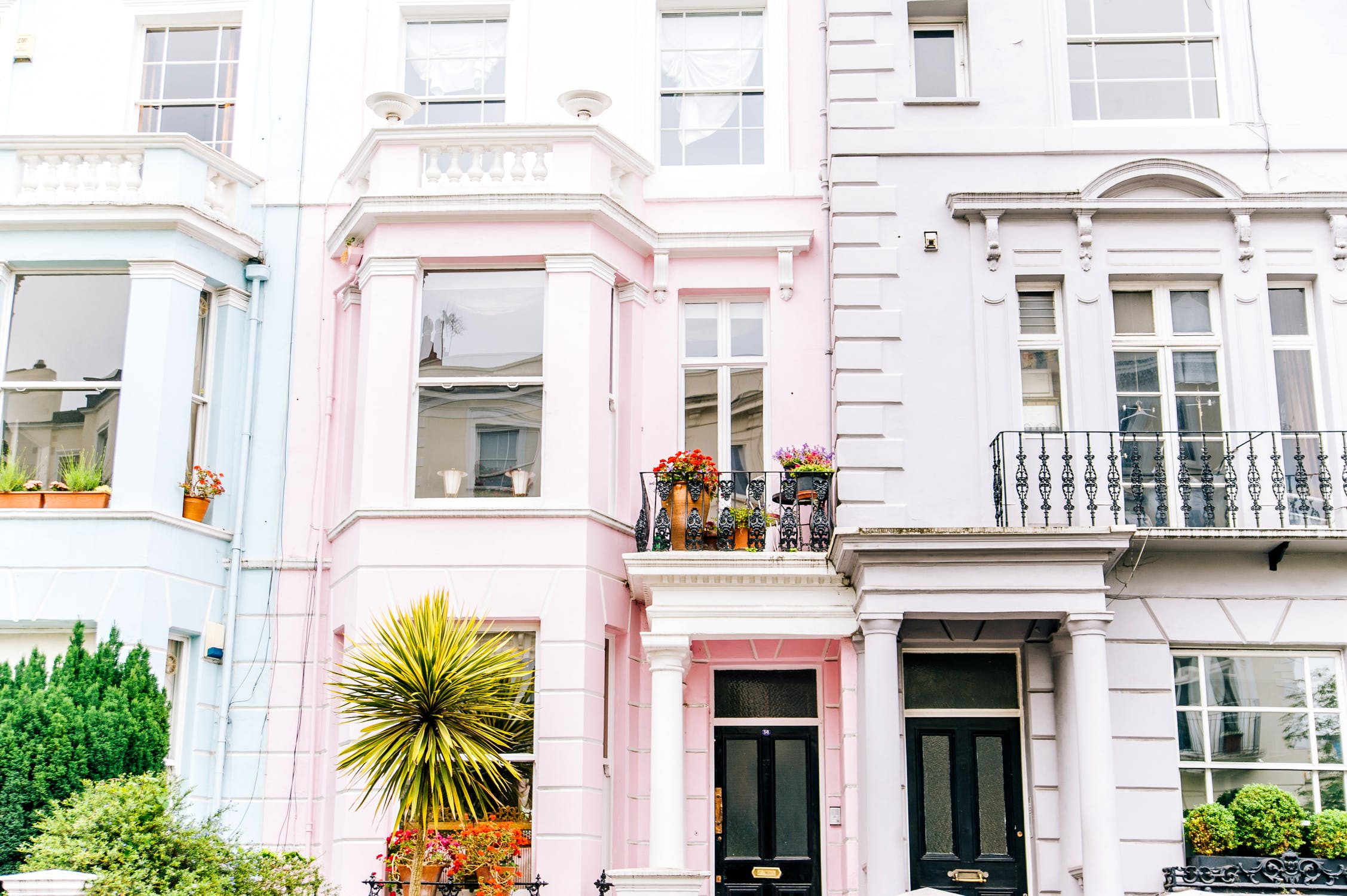
Buying Where There’s a Strong Rental Demand
Sometimes we might pay full market price. We might not get a discount if we think we can add value to that property. So being able to buy with equity on day one is a great start. What’s more important than that, is buying an investment property where there’s Strong Rental Demand. If the current tenants move out of the property, we can easily find some new tenants to move into the property paying a fair market rent. How do we work that out? Well, we can go online. We can check what’s the demand in an area. We can speak to local letting agents to find out what’s the best thing to be buying at the moment. We want to make sure that we’re buying in an area where there is an increasing population. As the population goes up there’s an upward pressure on the demand for accommodation to rent and also property to buy. So if you buy in an area with an increasing population, that’s going to be a good strong rental demand.
“You might look at a property that is just too expensive, in that case don’t buy it. You want to hunt around and find properties at the right price, where it does stack up to give you positive cashflow”
Only Buying An Investment Property Which Gives Positive Cash Flow
Now the next criteria we look for is that we only ever buy an investment property that gives us cash flow. What do we mean by that? Well, the rent that we take in each month after we’ve paid for the mortgage, the insurance, the management, any other maintenance and fees and things like that, there must be some profit leftover every single month. If there isn’t any profit, it’s not a good deal. Someone might say, yeah, Simon, what about long-term capital growth? Yes, we expect property prices over the long-term to go up. They don’t always go up remember, they go up and come down because the property market, just like every other market, is cyclical. But the long-term trend in the UK is up, as we have this small island with a limited amount of accommodation and an increasing population. So yes, we believe that long-term property prices will go up. However, there’s no guarantee that’s going to happen. I therefore teach my students that if we’re investing in property, it must make us money right now.
You might look at a property that is just too expensive, in that case don’t buy it. You want to hunt around and find properties at the right price, where it stacks up to give you positive cashflow. It’s really, really important.
Being Able to Add Value
The next thing I look for when looking for a good deal is being able to add value to a property. In the past, over my 26 years of investing, I bought some investments, which at the time seemed like a very good deal, based on the knowledge that I had at that time. But given what I know now, and the power of hindsight, I probably wouldn’t have bought those properties if I had a second chance. Some of those properties were new off-plan properties. Now off-plan can seem very attractive. The idea being that you buy in advance before it’s built, you fix the price and hopefully the market goes up over time. In a rising market that can work. In a way you’re buying a little bit of a discount by buying it at today’s price, given that tomorrow’s value might be higher. But the problem is when you buy brand new developments, you are genuinely paying a premium price. You’re paying more for that, than if you were buying an older property.
It’s a bit like when you buy a brand new car, the moment you drive it off the garage forecourts, the value of that car comes down. In the same way a property value might not come down, but because it’s been at a premium, it’s going to take a while for that value to go up. As soon as you’ve had one set of tenants living in the property for more than six months, well, that’s no longer a new property. It’s going to have some wear and tear. So personally my recommendation is do not buy brand new property. It might look nice and shiny. It might be easy to rent at first, but I believe generally you’re going to be paying a premium. Given that we want to get some equity locked in on day one, which was the first point I made. It’s very difficult to do that. Whereas if you buy older properties that need some work doing to them, it’s a bit more hassle, I agree with that. But you know what? You can add value. That’s one of the great things about investing in property.
If you invest in stocks and shares or cryptocurrency, there’s nothing you can do to affect the value. Unless you’re someone like Elon Musk, who bought several billion dollars worth of Bitcoin and suddenly Bitcoin prices rose up. But I’m sure apart from Elon who I know is reading this blog, that’s probably not going to apply to most people.
In property you can absolutely buy an asset, which you can add value to through refurbishments, and you can force the appreciation. You could cause the value to go up by the actions you are taking. On a very basic level, you might look for a property that’s been inherited and it needs a new kitchen, new bathroom, new carpets, bit of paint, and suddenly it’s an amazing property. Or maybe you do some more significant work on the property to enhance the value even more such as doing an extension, going up into the attic, going to the basement, whatever it might be. But ideally we’re looking for a property where we can personally add value to that property, to force appreciation. If you’re buying a new property, the developers have already done that, that’s very difficult for you to do. This leads me to the next point.
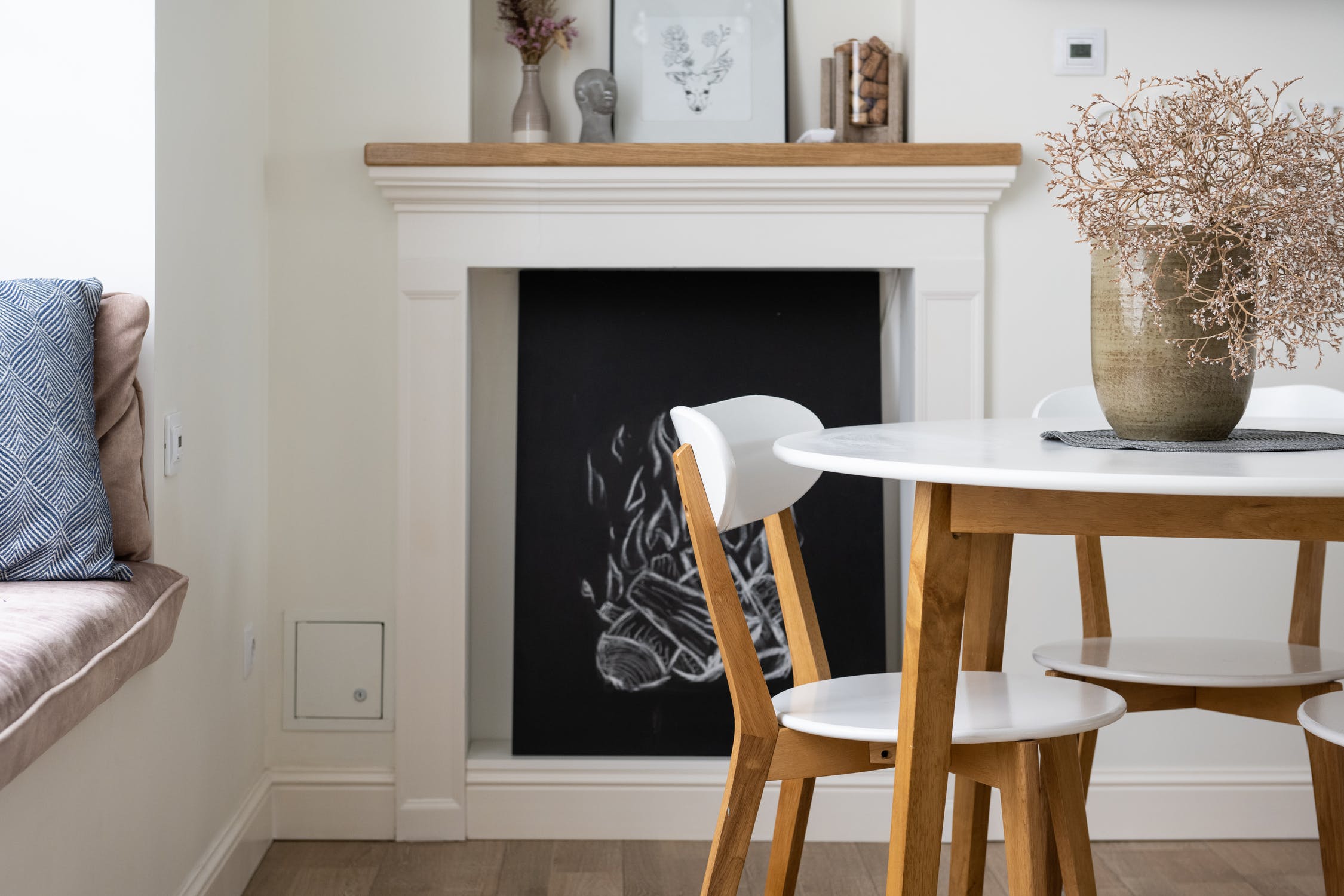
Low Initial Investment – Momentum Investing
I like investments where there’s a very low initial investment, or if I do have to put money in, I can quickly recycle that money and take it out so there’s only a small amount of money left in. That’s a strategy called Momentum Investing, where either we buy at a discount and or we add value to the property, such as within six months or nine months, we can then refinance and take most of the money out, which means we then go and buy another property. That’s how many of my mastermind student quickly build up a cash generating portfolios. So we look for those kinds of investments and obviously they’re a pretty good deal.
Low Initial Investment – Momentum Investing
Finally, and this is very important. We need to think about Return on Investment. That’s based on how much annual profit we make. So not the rental income, but the profit we make each year after paying the mortgage, the insurance, the management fees etc. How much money do we make each year divided by the initial investment to acquire that property in the first place? That should be your deposit, it should be your stamp duty, your legal costs, anything that you’ve had to pay to get that property in the first place. We then take that number and multiply by 100 to give us a percentage.
The higher the Return on Investments, the better the deal. Typically a normal Single Let property around the UK might give a 5% – 7% Return On Investment. In London it might only be two or 3%. If you utilise a strategy such as HMO’s, Houses of Multiple Occupation, where you’re renting out individual rooms to different people, your Return on Investment should be 15 to 20%.
If your strategy is a Purchase Lease Option where you control a property, but don’t actually buy it, you have the right to buy it in the future and in the meantime, you pay a fee to the landlord to use the assets. We might look for a 50% Return On Investment, which means we get our money back in two years because that’s what a Return On Investment is. It helps us compare this investment with this one and see how quickly we get our money back.
If we’re using Rent to Rent, we don’t actually own the property at all, we just rent it from a landlord in a different way to get a higher cash flow. Then we’re looking for 100% Return On Investment, where any money we put in, we get it back within the first year. So understanding return on investment is something that most property investors don’t really understand, but it’s important that you do because it’s how we compare one deal with another.
“Now the higher the Return on Investments, the better the deal. Typically a normal single let property around the UK might give a 5% – 7% Return on investment.”
To summarise these factors, we want to buy property ideally with equity on day one. We want to buy in an area with strong rental demand. We’re always buying for positive cash flow. We ideally want to buy a property where we can add value. We like property where there’s a low initial investment, or where we can recycle our money very quickly. Finally, we want a high Return On Investment.
It’s unlikely you’re going to see all of these criteria in any one deal, but if you do, wow, you need to move really quickly because that’s a great deal. If you don’t move quickly, when you find a good deal, someone else will come and snatch it from you. So by educating yourself and learning what makes a great deal for you, it will give you the confidence you need.
When I first started investing back in 1995, I didn’t know any of this. In fact, my first few years, I was learning very much by trial and terror, but I do hope that this has been a good eye-opener for you. Your criteria is going to be different than someone else. Make sure you understand what works for you.
If you get good at finding deals in your area, you might get to the point where you’re finding more deals than you can personally do, and you can then sell those properties onto other people. I’m going to talk about that in a future blog.

